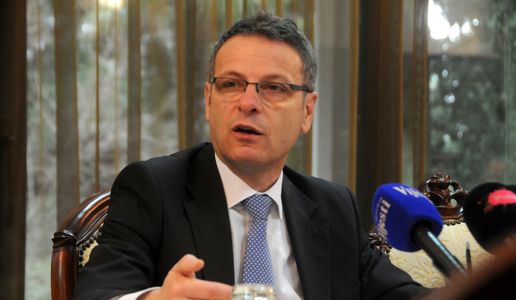Garcevic in Deference Report on Russia and the Balkans
A recent interview with Ambassador Vesko Garcevic, Professor of the Practice of Diplomacy and International Relations at the Frederick S.Pardee School of Global Studies at Boston University, in which he discussed how the issue of Islamic radicalism in the Balkans is presented in Russian media has been republished as part of a larger article on Russian influence in the Balkans.
The original interview, entitled “Russia Aggravates Conflicts in the Balkans,” aired on Radio Liberty/Radio Free Europe (RFE) and was republished as part of a March 6, 2018 article in the Deference Report entitled “Russia Stoking the Fire in the Balkans.”
From the text of the article:
Vesko Garcevic is sure that the problem with radical Islamic groups and any other group of foreign militants should not be minimized, but in the case how media in Russia has been presenting the problem, a typical example of propaganda can be recognized.
“Although I can’t deny or ignore the fact that in many Balkans disputes are rooted in religious differences and disagreements, it is difficult to imagine that radical Islamists with combat experience in Iraq and Syria will flood Bosnia and Herzegovina or any other state in the Balkans, as it’s been presented by Russia’s media.
At the same time, Vesko Garcevic doesnэt deny that representatives of radical Muslims could be found in the Balkans.
“Radical Islamic groups exist in all corners of the Balkans, including Serbia, Montenegro, Kosovo and Bosnia and Herzegovina, but their capability and strength is questionable, and they are far from being a major threat to the security of the region. We can talk about a few hundred members scattered over the Balkans, who, so far, proved to have been incapable of carrying out a serious terrorist attack. Moreover, most of them are closely monitored by the police.
During his diplomatic career, Amb. Vesko Garcevic dealt with issues pertinent to European security and NATO for almost 14 years. In 2004, he was posted in Vienna to serve as Ambassador to Organization for Security and Cooperation in Europe. He had been a Montenegro’s Ambassador to NATO from 2010 until 2014 and served as a Montenegro’s National Coordinator for NATO from 2015 until he joined the faculty at the Pardee School.
